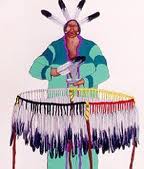 Here’s one of my favourite posts from that prolific blogger William (Bill) White, addiction recovery advocate, writer, researcher and historian. Bill’s complete writings are now being hosted on a website run by Chestnut Health Systems in the US.
Here’s one of my favourite posts from that prolific blogger William (Bill) White, addiction recovery advocate, writer, researcher and historian. Bill’s complete writings are now being hosted on a website run by Chestnut Health Systems in the US.
‘Through my early tenure in the addictions field, the question of readiness for treatment and recovery was thought to be a pain quotient. We then believed that people didn’t enter recovery until they had “hit bottom.” If a person did not show evidence of such pain-induced readiness, they were often refused admission to treatment. Then we recognized that the reason it took people so long to “hit bottom” was that they were protected from the painful consequences of their alcohol and other drug use by people we called “enablers.” We then set about teaching enablers to stop rescuing and protecting their beloved but addicted family members.
Vern Johnson then came along and convinced us we could raise the bottom through a process he called intervention. Staging such interventions within families and the workplace was something of a revolution that brought large numbers of culturally empowered people into recovery, including a former First Lady. All of these early philosophies and technologies relied on pain as a catalyst of addiction recovery, and that was the view I brought to my work as an evaluator of an innovative network of women’s treatment programs in the 1980s called Project SAFE.





